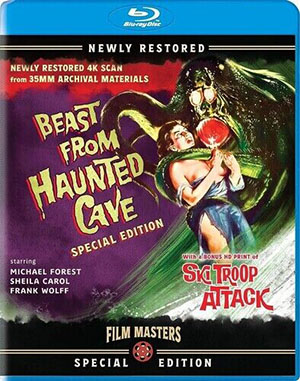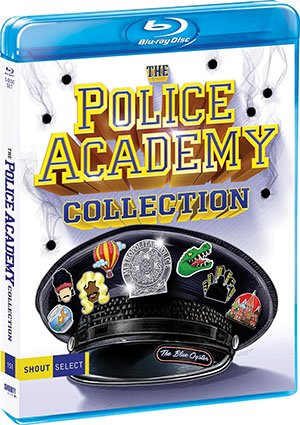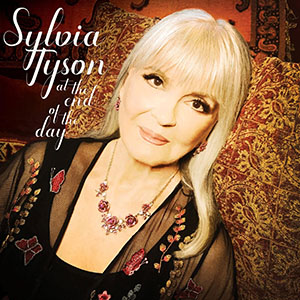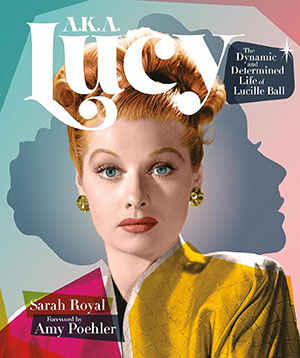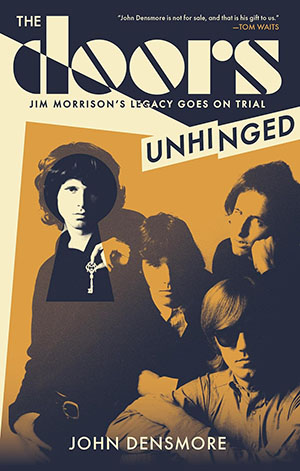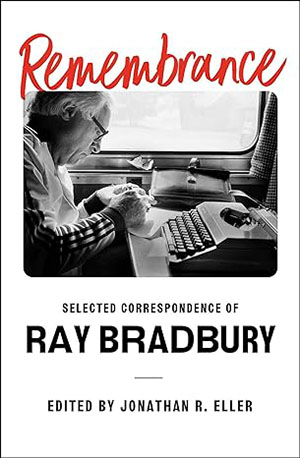|
DEJA RE-VU
"WITNESS" 4K UHD Hard-nosed Homicide Detective Sergeant John Book questions the boy, trying to get him to identify the killer. Samuel does spot a photo at the police station. Unfortunately for Book, the perpetrator is someone far closer to home than he could ever have imagined. Now the boy, his mother, Book and his police partner are all in grave danger. A badly wounded Book winds up recuperating in Rachel's rural Amish community. She and Samuel were the fishes out of water in Philly. But without technology, in the strict religious atmosphere of the farmers, it's now Book who is totally out of place. Yet an attraction is building between the gun-toting cop and the bonnet-wearing widow. Can that spark possibly ignite when they come from such different backgrounds? That's the high-concept premise of the 1985 hit film "Witness." The film, which won multiple Oscars, has just been released on 4K UHD by Arrow Video. The look is warm and enveloping in the Amish portions of the film and sharply realistic in the city scenes. You get your choice of three audio tracks, including the original theatrical stereo and a 5.1 surround remix. With his willingness to work and his carpentry skills, Book makes himself useful to the farmers. But he gets much more from them. His blossoming connection with Rachel enables him to rediscover his humanity. Earlier in the film, he had a Dirty Harry kind of attitude, displayed in full as he rousted a suspect. But being in unfettered Amish country, with Rachel, who has nursed him back to health, he reveals a hidden vulnerability and compassion. After being known primarily for playing Han Solo and Indiana Jones, Ford welcomed the opportunity to portray a more complex character in a more serious film. He makes the most of this chance. While he can leaven the character by occasionally dropping in his trademark, deadpan humor, Ford digs deeper, displaying a sensitivity to balance the ruggedly heroic aspect. The evolving relationship between Book and Rachel is played beautifully. To express the bond, Ford and McGillis rely more on facial expressions, exchanged glances and the truth in the eyes, than on dialogue. This is accomplished under the skilled direction of Australian Peter Weir ("Gallipoli," "Picnic at Hanging Rock," "The Year of Living Dangerously"). McGillis, who at that point had only been seen in one previous movie, "Reuben, Reuben," engagingly blends Rachel's shyness and repression with a new coyness and rebelliousness. Haas, though he was just eight years old when filming "Witness," is letter perfect. Weir guides him to a performance which is unwaveringly believable. The youngster's innocent, wide-eyed wonder upon seeing the outside world proves poignant. The usually congenial Danny Glover is genuinely scary as a dirty cop. Josef Sommer, in nuanced touches, finds intricacies in what could have been a one-note character, that of Booker's former mentor. Patti LuPone, her part pared down to only a few moments, gives Booker's sister an angry energy. Viggo Mortensen can be seen in the movie, as well (if you don't blink). Complementing Weir's brilliant work is that of cinematographer John Seale, who was nominated for an Oscar. The film vividly contrasts the grime and chaos of the city with the idyllic, peaceful existence among the Amish. In the pastoral settings, Weir and Seale achieve a painterly quality which can be fully appreciated in 4K. Academy Awards did go to Thom Noble for Best Film Editing; Earl W. Wallace, William Kelley and Pamela Wallace for Best Original Screenplay; and Maurice Jarre for his score, which is particularly effective during the edge-of-your-seat, violent climax. The Arrow Blu-ray edition includes must-see bonus features, among them a frank interview with Searle; a new commentary track by Australian film historian Jarret Gahan which presents many insights into Weir's style and career trajectory; a vintage Harrison Ford interview; a new video essay; an archival conversation with Weir; and a five-part archival documentary featuring interviews with numerous principals, including Ford, McGillis, Weir, Seale, Haas, LuPone, Mortensen and producer Edward S. Feldman. This is the rare film that works seamlessly as a crime drama, a thriller and a romance. Extraordinary direction and performances make it worth viewing and re-viewing. "THE DESPERATE HOURS" (LIMITED EDITION) The film is now available on a Limited Edition Blu-ray from Arrow Video. The black-and-white picture is absorbingly sharp, thanks to a new restoration from a 6K scan of the original VistaVision negative. The plot involves three escaped convicts who barge into a suburban house and take hostage the seemingly typical American family, the Hillards. The cons plan to hide out as long as it suits them, and they make clear that, if any of the four family members -- mom, dad, teen daughter and young son -- should tip off the police, there will be dire consequences. Joseph Hayes co-wrote the lean-and-mean screenplay, which he adapted from his very successful novel and Broadway play. It was inspired by true-life events. Bogart stars as the head thug. He had graduated from villain parts, but obviously relished this role, a return to the gangster image that launched him in the 30s and early 40s in films like "The Petrified Forest" and "High Sierra." Here he's a harsh, dangerous outsider, resentful of the middle-class patriarch. Fredric March plays the father, replacing Spencer Tracy, who dropped out when he wasn't given billing over Bogart. March's performance is riveting, delivering one of his most subtly powerful portrayals. These stars are ably supported by a cast that includes Dewey Martin as Bogart's brother, Martha Scott as March's wife, Mary Murphy as the coming-of-age teen, Richard Eyer as the spunky Hilliard son, and Arthur Kennedy as a deputy sheriff. You'll spot a number of other familiar faces, including Gig Young, Whit Bissell, Ray Teal, Simon Oakland, Alan Reed, Joe Flynn and Beverly Garland. The superb direction of William Wyler ("The Heiress," "Detective Story," "Mrs. Miniver") lifts this picture far above the average noir thriller. He keeps the tension simmering throughout, while never losing his focus on multi-dimensional characterization. Wyler had directed Bogart in another memorable gangster role, in 1937's "Dead End." The Arrow release offers several worthwhile bonus features, including a new audio commentary by a film historian; a perceptive new appreciation of the movie by a film and television associate professor; a new visual essay; a wonderful audio interview with Wyler's daughter, Catherine; and a lobby card gallery. This taut and terrific film is just as gripping as it was in 1955. Unfortunately, the threat of home invasion has only increased in the decades since.
"BEAST FROM HAUNTED CAVE" SPECIAL EDITION PLUS "SKI TROOP ATTACK" A criminal gang plots to steal gold bars. Setting off an explosion as a diversion for their heist, they inadvertently stir a horrifying cave-dwelling creature. They escape into the snowy wilderness, but a man-eating, giant insect-like monster is hungrily pursuing them. The movie, produced by Gene Corman (Roger's brother), marked the directorial debut of Monte Hellman ("Two-Lane Blacktop," and the early Jack Nicholson vehicles "The Shooting" and "Ride The Whirlwind"). Of the cast, Frank Wolff is most effective, playing a nefarious villain. Sheila Noonan adds a feminine touch as the moll. Bonus features include an audio commentary track, a newly restored original trailer and the documentary: Hollywood Intruders: The Filmgroup Story: Part One." The transfer from 35mm archival materials makes this tacky "Beast" vividly haunting. The release presents the original 65-minute theatrical cut, as well as the 72-minute, expanded TV version. In keeping with the drive-in, double-feature mentality, the package also gives you 1960's "Ski Troop Attack." The original ads proclaimed, "They turned a white hell red with enemy blood!" and "The great story of unmatched courage that broke the back of the Battle of the Bulge!" Well, beyond all the hyperbole, you do get a low-key, but involving adventure flick about an American patrol on a snowy mission behind the German lines in World War II. The film was actually shot in the Black Hills of Deadwood, North Dakota. But producer/director Roger Corman could work wonders with any sort of filming challenges. These two movies, shot back to back, star Michael Forest, best known for playing Apollo in the 1967 "Star Trek" episode, "Who Mourns for Adonis?" He also played the priest who was Mary Tyler Moore's old flame on a "The Dick Van Dyke Show" episode. Other cast members, including Wolff, also show up in both movies. With Corman, you know the movie was shot on a minimal budget, though he always knew how to maximize the resources he had allocated for any particular project. He once again called on screenwriter Charles B. Griffith ("A Bucket of Blood," "The Little Shop of Horrors," "Death Race 2000") to hold the viewer's attention with a simple story. The Film Masters commentary track offers plenty of fun facts. The Film Masters releases used 2K and 4K scans, which mean that these movies look as good as they possibly can. So you'll see all of the action much clearer than you ever would have in their original drive-in runs! Relish the cheesiness of these flicks. It's part of the appeal. "THE SCARLET LETTER" SPECIAL EDITION Nathaniel Hawthorne's classic tale of unwed mother Hester Prynne in Puritan New England has been told in films a number of times. Perhaps the best remembered is the 1926 silent version featuring a heart-wrenching performance by Lilian Gish. There were earlier productions and more recent ones, starring Senta Berger, Meg Foster and Demi Moore in the part of Hester. Film Masters has released a Blu-ray special edition of the 1934 sound version, which featured the comeback of silent star Colleen Moore in the starring role. The bob-haired former flapper, so popular in the 20s, had little success when talkies came around. But she gives a strong performance in this production, which turned out to be her final screen appearance. Film Masters' new release of this first sound version of "The Scarlet Letter," looks terrific thanks to a recent 4K scan from the 35mm camera negative. DTS-HD sound is another plus. After being humiliated in the town square, infant in her arms, Hester Prynne accepts the red letter "A" she must permanently have emblazoned on her dress. Unbowed, she refuses to name the father. Ostracized, she goes on with her lonely life, devoting herself to her daughter. The child's father is none other than the village's minister, Arthur Dimmesdale. Unable to accept his own hypocrisy, he suffers terribly, wracked by guilt over his sin and his inability to share Hester's public punishment. Hester's long lost husband returns, now calling himself Chillingworth instead of Prynne. The creepy interloper pretends to care about medically treating the frail Dimmesdale's failing heart. But really, the sinister old man with the long beard suspects the reverend and only seeks to further torment him. In addition to Moore's earnest, subdued, yet compelling portrayal of the persecuted Hester, Hardie Albright conveys the tortured soul of Reverend Dimmesdale. Henry B. Walthall delivers the proper menace as Chillingworth. Precocious child star Cora Sue Collins is adorable as Hester's daughter at five. Alan Hale ("The Sea Hawk," "Gentleman Jim") winningly provides comic relief, when he makes the mistake of trying to help his pal (the equally amusing William Kent) in courting an intimidating widow. Robert G. Vignola directed in primarily workmanlike fashion. More noticeable is the art direction of Frank Dexter, which remarkably captures the look of Massachusetts in the 1600s. This disc presents some great bonus features, including an audio commentary track and restored 1965 re-release theatrical trailer. The featurette "Salem and the Scarlet Letter," narrated by John Carradine, offers interesting insights, as does "A Sin of Passion: Hawthorne on Film." "Revealing the Scarlett Letter" contains colorful anecdotes from producer Sam Sherman, who bought the rights to this film 60 years ago and aided in the restoration, as well as the assembling of Film Masters' extras.
"THE POLICE ACADEMY COLLECTION" Despite the fact that reviewers tended to loathe the movies, the public loved them. These comedies are critic-proof. The silliness provides abundant hilarity. A likable cast delivers yuks galore via shameless slapstick and endearingly cornball jokes. Sophomoric? Yes. Laugh-filled. Also yes. "Police Academy" movies are guilty pleasures. So just turn off the guilt and turn on these sharp new discs. You won't be able to muzzle your guffaws. Plot is not a key component of these movies, but the jumping off point for the original one results from a shortage of police officers. The mayor declares that no recruit application, no matter how pathetic, should be turned down. Personable Steve Guttenberg ("Cocoon," "Short Circuit," "Three Men and a Baby") stars as Carey Mahoney, who's a cop's son, but also an incorrigible troublemaker. He winds up with a simple choice -- police academy or prison. He reluctantly chooses the badge, but connives to get himself thrown out of the program. At the academy, he bonds with fellow cadets, including his romantic interest, Karen Thompson, the most competent of the batch (Kim Cattrall, later of "Sex and the City" fame); a human sounds effects machine (comic Michael Winslow); man mountain Moses Hightower (football great Bubba Smith); gun fanatic Eugene Tackleberry (David Graf); much bullied Leslie Barbara (Donovan Scott); and nerdy, accident-prone Douglas Fackler (Bruce Mahler, Rabbi Glickman on "Seinfeld"). Fackler's wife Violet, played by Debralee Scott ("Welcome Back, Kotter," "Mary Hartman, Mary Hartman") tries desperately to keep him from entering the academy, fearing the worst. But by the third film, she herself becomes a cadet. The ever raging Lieutenant Thaddeus Harris (G.W. Bailey) is the cadets' nemesis, while Commandant Eric Lassard (George Gaynes) offers a bit of empathy to the misfits. Leslie Easterbrook plays a stern sergeant whose large breasts provoke plenty of rude humor. The franchise, with changes in the cast, exhausted all possibilities, even taking our hapless heroes on a mission to Moscow for the 7th entry. Though some of the later movies lagged, all provided some memorable comedic moments. The first film serves up a particularly raunchy, but very funny scene involving a prostitute, played by Georgia Spelvin of "The Devil in Miss Jones" infamy. The most consistent laugh-maker was Winslow, who appears in all seven movies. His uncanny gift for producing a myriad of sounds with his talented mouth never grows tiresome. Along the way, his repertoire, often used in pranks, includes such noises as a hair clipper, helicopter, machine gun, video game and a dubbed Bruce Lee martial arts flick. Hugh Wilson ("WKRP in Cincinnati," "First Wives Club") directed the first film. Among the other notable helmers who took the reins for sequels were Jerry Paris ("The Dick Van Dyke Show") and Peter Bonerz ("The Bob Newhart Show"). The Shout! set will thrill "Academy" aficionados. The movies, with 2K scans, look and sound great. And the bonus features are plentiful and pleasing. Featurettes offer new interviews with producer Paul Maslansky, writers Neal Israel and Pat Proft, composer Robert Folk and various cast and crew members;.You can listen to a new audio commentary for "Police Academy 4: Citizens on Patrol," as well as an archival one for the first movie with contributions from Guttenberg, Winslow, Easterbook, Wilson and Maslansky. You'll also find archival featurettes, additional scenes and theatrical trailers.
"Police Academy " even spawned a sitcom and an animated series, though those are best forgotten. The seven feature films, however, are well remembered. People never seemed to tire of these antics. So shut off your mind and feed your funny bone. These discs will keep you chuckling.
SYLVIA TYSON - "AT THE END OF THE DAY" The Toronto-born Tyson began as one of the gifted folk performers to emerge from the early 60s Greenwich folk scene. With her husband Ian Tyson, she delivered stirring melodies and harmonies. Ian & Sylvia won fame with such classics as Ian's "Four Strong Winds" and Sylvia's "You Were On My Mind" (the latter was made into hits by We Five and Crispian St. Peters). The throaty thrush displays versatility here with a memorable collection of diverse, original songs. She sings of love, loss, family and surviving difficult patches. Tyson offers lovely ballads like "Not Quite Rain," "Generous Heart" and the inspirational "Angels in Troubled Times," with a melody adapted from a traditional English tune. The jaunty "Now Tell Me That You've Got The Blues" changes the tone. Some of the tunes glow with a warmly traditional country sensibility, such as "Long Chain of Love." Other outstanding tracks include "Sweet Agony," the charming instrumental "Janet's Garden" and the meaningful "No Crowd, No Show," Her disarming melodies and profound, perceptive, poetic lyrics are brought to life by her deeply affecting, still resonant voice. She projects an engaging earthiness. Having been inducted into both the Canadian Music Hall of Fame and Canadian Country Music Hall of Fame, Tyson has closed out a lengthy and illustrious discography with an immensely satisfying, heartwarming closing creation. In writing and recording these songs, Tyson drew on the wealth of experience gained from her 83 years on this planet. You can hear those years in her gently expressive voice and it only makes the listener's involvement richer. As she sings on the exquisite title track, "It's the good times I remember at the end of the day." Fans will feel warm memories well up as they listen to this beautiful album.
BIANCA ROSSINI - "APAIXONADA" "Apaixonada" is filled with lively, luscious originals, which honor traditional music, but sparkle with a fresh feeling. The album's title track opens with a sensuous trumpet, giving way to Rossini's fabulously fetching voice. Then piano enters, followed by her fantastic full band. It beautifully builds its celebratory sense. She can charm with pretty, gentler numbers like "Lua Dourada" and "Sempre Acaba No Barzinho." She brings out all of the dramatic power of the lovely "Luiza." Among the other irresistible tracks are "Sei La Sei" and "Terra Natal," This is an immensely entertaining set that stirs excitement and joy. Rossini's enthusiasm is catchy. You won't be able to keep your feet still or your head from bopping. Don't fight it. Dance the night away to the "Apaixonada" album. The multi-talented Rossini has also enjoyed success in other creative pursuits, including acting, poetry, modeling, chat show hosting, dance and choreography. But her gifts as a singer and songwriter alone, as evidenced here, are more than worthy of widespread attention. She proves to be a queen of modern Bossa Nova and Samba, adding a pleasing pop element. RICK & JENDA DERRINGER - "ROCK THE YACHT" Now teamed with his wife Jenda, he's back with a new album, "Rock The Yacht." It begins with a winning power ballad, "First Time." Derringer goes jazzy with "Winter," "Hot and Cool" and "Good 2 Go." Some of them have an R&B flavor. The Buffet-y "Florida Siesta" breezily feels like a Caribbean fiesta. "Summertime Delights" has a Paul McCartney & Wings-esque pop-rock flair. Derringer unleashes his rock guitar flash on the anthemic "United States." Derringer's vocals are strong and sure, complemented by Jenda singing in harmony or unison. His guitar work displays his verve and versatility. It all adds up to a fun, family affair. KRISTIN HERSH - "CLEAR POND ROAD" A distinctive loveliness threads through the songs, but an undercurrent of uneasiness bubbles beneath. Hersh's lyrics are consistently intriguing. Melodically and sonically, her evocative compositions are entrancing. Her voice, with its quiet, yet intense power, enthralls. She weaves a magical spell on the opener, "Bewitched Reruns." Each song establishes a memorable identity. Among the other standouts are the gracefully fragile "Dandelion," the somber and hypnotic "St. Valentine's Day Massacre," the riveting "Reflections on the Motive Power of Fire," the passionately delivered "Eyeshine," the haunting, bluesy "Palmetto" and the mini-epic, trippy "Thank You, Corner Blight." "Ms Haha" bristles with a rock fierceness. The closer, the atmospheric "Tunnels" generates a sense of foreboding. The instrumentation, sometimes spare, somethings fuller, enhances, but never overwhelms Hersh's edgy delicacy. Acoustic guitar and cello primarily drive the backing tracks, though percussion and effects occasionally add a different, expansive element. Her expressive voice conveys layers of meaning. The alluring album, her 12th solo release, becomes more immersive with each listening. Her very personal music remains endlessly inviting, even when she leads us down darker paths. You'll find a visit to "Clear Pond Road," with its seductive strangeness, to be a rewarding, intimate journey. JOHN McCUTCHEON AND TOM PAXTON - "TOGETHER" John McCutcheon, a longtime fan and friend of his, has recorded 44 albums of his own, earning six Grammy nominations along the way. A collaboration had been discussed for years. But it wasn't until the Covid pandemic that they found the time. Zoom sessions led to writing a batch of winning tunes. They can shift gears effortlessly, ranging from the amusing "Same Old Crap" to the homey, comforting old-time cowboy song "The Campfire" to the touching "Invisible Man." "The Fan" is a lilting lament of the dedicated baseball zealot. "Everything" breezily and succinctly takes on homophobia. The duo goes topical on the rousing "Ukrainian Now," exhorting listeners to rally round a noble cause, a David versus Goliath battle, suggesting that we must all identify as Ukrainians, defending their homes against aggressors. The duo warns that apathy and isolationism are not the answers. "In America" sympathetically speaks to the immigrant experience, describing oppressed Jews fleeing Eastern Europe in 1904, seeking freedom and a place in the land of milk and honey. On the a cappella "Letters From Joe," McCutcheon movingly talk-sings the correspondence from a young man lost in WWII. The album can also supply sweet love songs, such as "Life Before You" and the title track. They find an unusual spirituality in the storytelling of "Christmas in the Desert." With Paxton's lead backed by piano and fiddle, "Prairie Star" tells of a quest to leave the hectic urban life behind and return to something simpler, purer.
The instrumentation, like the material, is pleasing and diverse. It all adds up to a very special teaming of two very special performers. Whether taking solo turns or harmonizing beautifully, Paxton and McCutcheon shine "Together."
A.K.A. LUCY: THE DYNAMIC AND DETERMINED LIFE OF LUCILLE BALL The pioneering comedienne earned the adoration of generations of fans. "I Love Lucy" debuted on CBS in 1951. Today, more than 70 yers later, the series still prompts enthusiastic laughter. Lucille Ball is still revered by viewers and she continues to influence modern comedic talents. Filled with fabulous photos and interesting anecdotes, this fabulous, authorized book is fun to read. It's not a dry, chronological biography. Royal covers Ball's long and varied film career. She delves into the many ways in which "I Love Lucy" changed the television landscape. Readers will also get a glimpse into the important role of family in a complex, busy existence. There's a fascinating analysis of classic episodes and unforgettable comic bits, as well as all the little funny and endearing signatures Ball provided her character, Lucy Ricardo. Royal paints a portrait of Ball as a remarkably determined and resilient woman with a peerless work ethic. Upon reading Royal's elegantly assembled book, with its entertaining foreword by Amy Poehler, you'll enjoy a greater understanding and appreciation of Ball's life and career. LENA HORNE: GODDESS RECLAIMED At a time when there was a seemingly impossible prejudice to overcome, Horne, with courage and resolve, carved out an impressive career, opening doors and breaking barriers all along the way. Her inspiring, extraordinary story is told in this lavishly presented book by Donald Bogle, whose insights have long been admired by TCM viewers. He gives readers the background on the attitudes of the film industry and society as a whole that worked against minorities achieving their true on-screen potentials. The array of stunning photographs gives an indication of how dazzlingly photogenic Horne was. And those who have watched her movies on TCM know how riveting she could be as an actress, as well as a singer. She could steal the show with a musical number in films like "Words and Music" or "Stormy Weather." It's all here, including a battle with the blacklist, ill-fated romances, marriage, activism, basking in the Broadway spotlight. The sumptuous book is a perfect celebration of the glamorous, silky-voiced, ultimately triumphant Horne.
THE DOORS UNHINGED: "You Make Me Real," Jim Morrison sang achingly. But he might have sung, "You make me reel" to Ray Manzarek, as Morrison, the tragic rock idol, must have been spinning in his Paris grave upon learning that the band's keyboardist was selling their legacy to the highest bidders.Too often, guitarist Robby Krieger was following dutifully behind. In his newly republished book, "The Doors Unhinged," drummer John Densmore details the legal battles he undertook to preserve the purity of Morrison's musical vision. The poet Morrison, the primary lyricist, sometimes also came in with melodies. Other numbers were sired mainly by Krieger. Morrison insisted that the entire band share all royalties evenly and that all songs be credited simply to The Doors, regardless of who initiated them or contributed more. (Except for the fourth and fifth albums, "Soft Parade" and "Morrison Hotel," which had individual credits for Morrison or Krieger or both, initially due to creative differences). He also declared that the use of the music would have to be approved unanimously by all members. Densmore proved to be Morrison's protector. Time and again, he vetoed licensing opportunities. He put the kibosh on a deal with Cadillac that would have been insanely lucrative, enraging Manzarek, whose mantra appeared to be, "Show me the money!" Densmore, on the other hand, was haunted by a single question, "What would Jim want us to do?" Morrison certainly suffered from human weaknesses, which led to his demise at age 27. But as an artist, he had an unwavering strength and integrity. He didn't compromise. He didn't bow down. He didn't sell out. And Densmore hasn't let his former bandmates succumb to that seductive urge either. When Manzarek and Krieger wanted to hit the road again, this time with drummer Stewart Copeland (The Police) and singer Ian Astbury (The Cult), Densmore sued simply to ensure that they made clear in all promotional materials that this wasn't actually the original Doors, but rather two founding band members, now in a new and different lineup. Imploring his once close friends hadn't delivered results, so he decided to try the courts. Manzarek and Krieger subsequently sued Densmore for $40 million to recoup losses from vetoed deals. The book describes the expensive, messy legal wrangling, the tensions and tribulations of the trials. The shattering of their longtime bond was agonizing for the drummer. Given Densmore's frank, conversational style, you'll want to read "Riders on the Storm," his full story of the band prior to the legal nightmares. But this latest book, detailing The Doors coming unhinged is a must-read, thanks to its unsettling account of the ever present war between artistry and commerciality. Densmore has had held onto the utopian viewpoints of the 60s, running contrary to the faceless, corporate rationale of the 21st century music industry. He points out that more and more iconic songwriters, including Dylan and Springsteen, are selling off their catalogues to the highest bidders. So it's encouraging to see someone like Densmore, still fighting the good fight, against all odds. C'MON, GET HAPPY: THE MAKING OF SUMMER STOCK The production took place at a point when Garland was losing her battle with addictions, making her unreliable, perpetually late and frustrating to work with. However, she was beloved on set and in the studio offices. She had earned a fortune for the studio over the previous years. But now her career was in decline. Everyone did their best to help her get through the shoot, her last at MGM. According to the authors, co-star Kelly, who had appeared opposite Garland twice before, was especially supportive. But Garland's troubles were not the only cause of difficulties and delays. The authors document the myriad of problems plaguing the production. Script issues threatened to derail any forward movement. In 1950, the post-war Hollywood scene was beginning to make a major shift. At MGM, longtime mogul Louis B. Mayer was seeing his power slipping away. The reins were being handed to Dore Schary, known for his message pictures. "Summer Stock" is something of throwback. Garland plays a debt-ridden Connecticut farm owner. Her sister (Gloria DeHaven) returns with a troupe of city-dwelling actors who want to use her barn to rehearse. Shades of 30s Judy and Mickey Rooney -- "Let's put on a show!" Fantle and Johnson give us all the background and the workings of the studio system. They delve deeply into the incredible story of the production. They have unearthed pertinent quotes from many of the principals. They etch portraits of the cast members, not just Garland and Kelly, but supporting players such as DeHaven, Eddie Bracken, Marjorie Main, Carleton Carpenter, Hans Conried, Ray Collins and Phil Silvers. They also provide information on the behind-the-camera talents, including producer Joe Pasternak, director Charles Walters, songwriter Harry Warren and lyricist Mack Gordon. The authors offer analysis of the film's brilliant musical numbers. They include info on the marketing of the movie, as well as original reviews from numerous publications. The authors get reactions on the magic of Garland and Kelly, as well as the film, from modern performers who have been influenced by them in some way, among them, Michael Feinstein, Tommy Tune, Mikhail Baryshnikov, Mandy Moore and Garland's daughter Lorna Luft. Somehow, "Summer Stock," the motion picture, doesn't show any hint of the pain and strife the cast and crew had to endure to complete the project. It's sunny, colorful, optimistic, escapist entertainment, epitomized by the classic Garland number, "Get Happy." The book will make fans of Garland, and film musicals in general, very happy, indeed. Fantle and Johnson have succeeded in making the case for the movie's inclusion among the classics of the genre. By the time readers finish poring over these pages, they'll have far more respect for "Summer Stock."
REMEMBRANCE: SELECTED CORRESPONDENCE OF RAY BRADBURY Jonathan R. Eller, who edited the wealth of material, divided the book into a number of intriguing categories. It's astonishing how many leading figures of his time connected with Bradbury. But then, it was impossible to read any of his inventive stories without being impressed, intrigued and inspired. The book begins with writers who had impressed and inspired Bradbury. It starts with a fan letter the teenaged Bradbury wrote to Edgar Rice Burroughs (creator of Tarzan and John Carter), inviting the revered, but reclusive author to attend a meeting of the Los Angeles Branch of the Science Fiction League. Also found in the "Mentors and Influencers" chapter are such luminaries are Robert A. Heinlein, Edmond Hamilton and Leigh Brackett. The first letter he received from the already acclaimed Heinlein raves about Bradbury's short story, "The Handler." One of the letters from Bradbury to Hamilton tells of meeting renowned film director Fritz Lang, who fled Germany after Goebbels asked him to head that nation's Hitler-controlled film industry. Many of the writers with whom Bradbury corresponded became close and lasting friends. They would often discuss difficulties or successes in getting stories published. With several of these peers, it was possible to exchange critiques, sometimes of the harshly honest variety, but always constructive. Bradbury generously offered guidance to many aspiring and newly established writers, including Charles Beaumont and Richard Matheson who became key contributors to Rod Serling's "The Twilight Zone." Richard Bach (Jonathan Livingston Seagull) wrote of how a speech Bradbury made at a writers' conference gave him the blueprint for his career. The letters aren't all literary-minded. Letters exchanged with his agent gives readers insights into the production of the "Ray Bradbury Presents" television series. There are also notes to and from editors and publishers. Other writers, his contemporaries, who pop up in these pages are W. Somerset Maugham, Jessamyn West, Gore Vidal, Arthur C. Clarke, Graham Greene and Carl Sandburg. Notable filmmakers are represented here, including interesting correspondence with Francois Truffaut and Federico Fellini. There's a fascinating series of letters exchanged with John Huston, after the director invited Bradbury to adapt "Moby Dick" for an ambitious movie project. Bradbury wrote to another director, Jack Clayton, regarding changes to the screenplay for "Something Wicked This Way Comes." Bradbury also wrote to Rod Steiger and Claire Bloom, who starred in the screen version of "The Illustrated Man." Along the way, in his various letters, Bradbury comments on such diverse subjects as travels, justice and the world. He offers opinions on music, ranging from Leonard Bernstein's classical recordings to the swing and sway of big band leader Sammy Kaye. Letters to family are warmly revealing. We learn about Bradbury, the devoted dreamer with the boundless imagination. But we also get a glimpse into his more practical side. In addition to revealing much about Bradbury's thoughts, philosophies, attitudes and techniques, the book offers deep insights into the nature of a writer's psyche and processes. Email Paul Freeman at paul@popcultureclassics.com |

